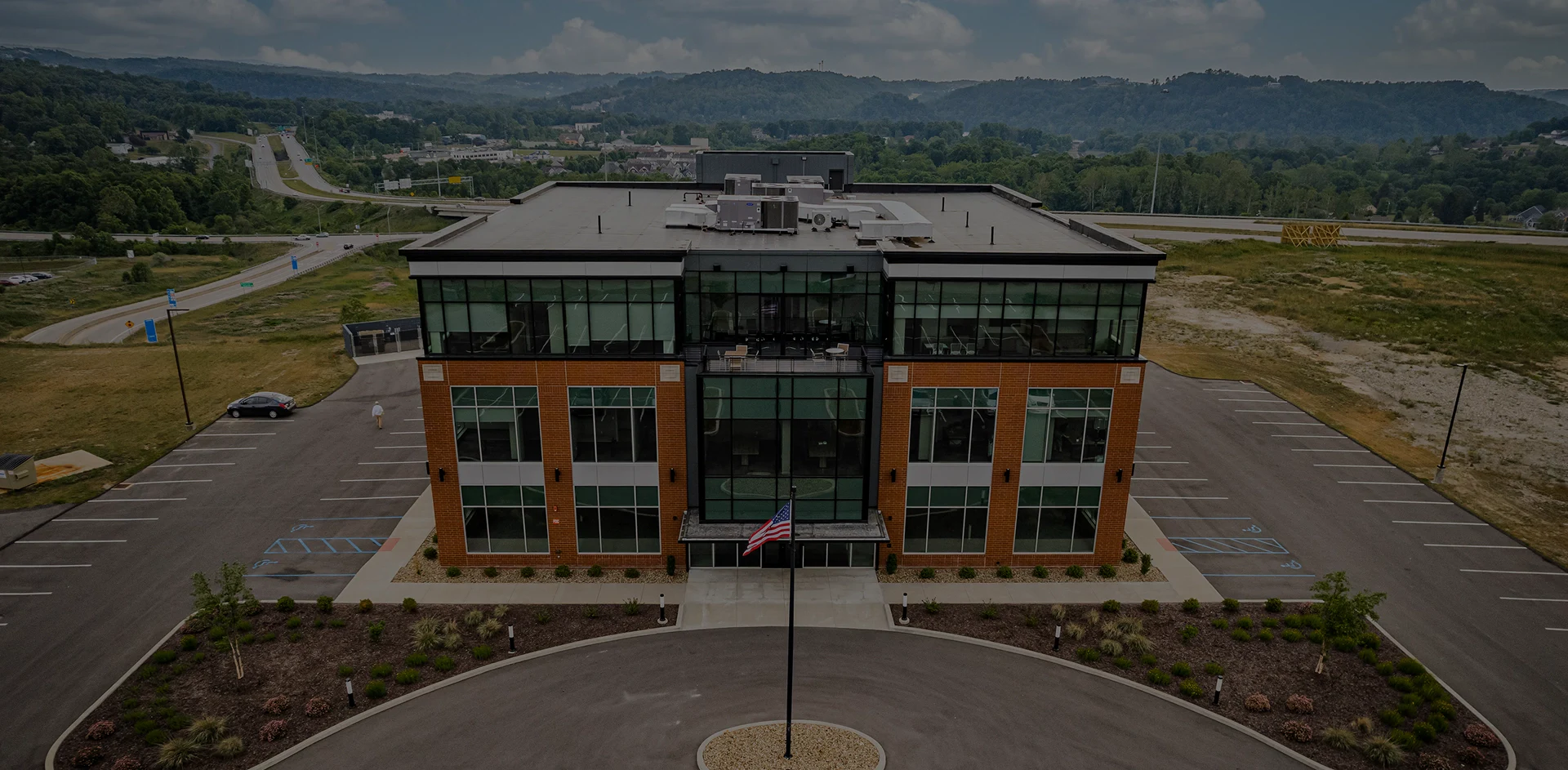Table of Contents
Cars and commercial trucks crash on West Virginia roads, whether on busy interstates like 68 or 79 or on rural country routes. People slip and fall in the state’s many retail stores, and children sustain injuries in public spaces. Some accident victims walk away with only minor injuries. Others deal with serious traumatic brain injuries.
Brain injuries occur due to car crashes, workplace mishaps, slip and falls, and other preventable accidents. These situations don’t always cause disabling brain injuries. When they do, the medical treatment, disabilities, and financial losses often change a family’s life.
Did someone else’s negligence leave you or a loved one with a traumatic brain injury? If so, a Bridgeport, West Virginia traumatic brain injury lawyer at Desai Law, PLLC, can help you recover the compensation you need to pay for the bills for medical treatments, physical and psychological therapy, pain and suffering, and, in extreme cases, inpatient treatment or supervised living.
Call us today to see what we can do to help you or your loved one.
We Make Responsible Parties Pay
![]()
At Desai Law, we believe that negligent people should pay for the damages they cause. As a people-first law firm, our young, energetic attorneys have worked hard to make that happen. We have thoroughly investigated each case and researched critical legal issues. We have determined all negligent parties and notified them of our intent to make them pay.
Our West Virginia attorneys have always resolved injury claims based on what was best for our clients. When possible, our attorneys have aggressively negotiated our clients’ claims. We have also presented their cases informally at mediation and other alternative dispute resolution procedures.
As litigation often becomes the only alternative, we have prepared our cases accordingly. Our attorneys begin developing our trial strategies during the early stages of each case. We always remain ready to present our evidence before West Virginia judges and juries.
Contact Desai Law, PLLC’s West Virginia Traumatic Brain Injury Lawyers Today

West Virginia Injury Accident Lawyer, Chirag Desai
Brain injuries are complicated. You need a traumatic brain injury attorney to fight for you and protect your legal rights.
At Desai Law, we work tirelessly for our injured clients while they focus on healing. We have dealt with negligent parties, their insurers, and their attorneys. We have settled our clients’ injury claims and obtained the best results possible.
When you contact us for your free legal consultation, we allow you to talk about your claim. We answer your questions and explain your legal options. You decide when to proceed with your case.
You can call us at (304) 974-1974 and speak with our West Virginia traumatic brain injury lawyers at any time. You may also leave a detailed message on our contact page.
Practice Areas
Bridgeport, West Virginia Traumatic Brain Injury FAQs
Traumatic brain injuries occur more frequently than you might imagine. A TBI diagnosis doesn’t always mean lifelong disabilities, but even a mild TBI (mTBI/concussion) sometimes manifests worsening symptoms over time. The Traumatic Brain Injury Model Systems estimates that 2.8 million Americans receive emergency TBI treatment each year.
The most recent statistics from the Centers For Disease Control and Prevention show that 61,000 people died from TBI-related issues in a single year. Far more TBI patients recover, but they retain mild to severe disabilities.
What is a brain injury?
A traumatic brain injury is a group of conditions that occur when a brain undergoes trauma. Physicians categorize them as mild (concussion), moderate, and severe.
The American Association of Neurological Surgeons’ Traumatic Brain Injury page lists eight different types of brain injuries. Each has specific characteristics and causes a range of possible outcomes and disabilities.
Emergency medical professions confirm these conditions through diagnostic tests such as brain scans.
- Hematoma: A blood clot located on the brain’s surface or within the brain
- Contusion: Bruised brain tissue that’s similar to external bruises
- Intracerebral Hemorrhage: Bleeding within the brain tissue
- Subarachnoid Hemorrhage: Bleeding that creates a thin layer of blood on the brain’s surface
- Diffuse Injuries: Microscopic damage that’s often scattered throughout the brain.
- Diffuse Axonal Injury: Loss of nerve extensions (axions) that often affects nerves and causes serious disabilities
- Ischemia: A brain trauma that prevents adequate blood flow
- Skull Fractures: Brain damage and complications that vary depending on the type of fracture, location, and severity
How do traumatic brain injuries occur?
Traumatic brain injuries occur accidentally and sometimes because of intentional acts. People sustain TBIs when an object (often a bullet) penetrates the skull and damages the brain.
They occur more frequently during closed head trauma. The brain sustains damage when it strikes the interior skull during a severe body jolt or bump, or a head blow.
Closed head injuries occur during many everyday activities and events.
-
Auto Accidents: Of the 18,557 patients in the TBIMS National Data and Statistical Center database, 49 percent sustained traumatic brain injuries in “vehicular” accidents. This includes cars, trucks, SUVs, motorcycles, ATVs, and other vehicles.
-
Falls: Falls caused 29 percent of TBIs. Fall accidents include slip-and-falls, playground accidents, workplace occurrences, and other incidents. These involve falls from elevated areas such as stairs and construction worksites, and on level surfaces such as pavement or parking lots.
-
Violence: TBIMS-documented injuries show that 11 percent of traumatic brain injuries happened because of violent incidents, primarily gun wounds.
-
Other: Eleven percent of the brain injuries in the TBIMS database list the cause as “other.” This includes medical malpractice, sports, defective products, and other categories.
What are the most common brain injury symptoms?
Whether you sustain a mild, moderate, or severe TBI, you require immediate medical attention. When you don’t recognize the symptoms, you delay your diagnosis, treatment, and recovery. TBI symptoms don’t always align with your expectations. You often feel only vague symptoms and you won’t necessarily lose consciousness. That’s why it’s important to learn about TBI symptoms before an accident injures you or a loved one.
All brain injuries have the potential to produce a wide range of symptoms to varying degrees. The CDC places them in categories based on how they affect you.
Symptoms common to all traumatic brain injuries
-
Physical symptoms: Blurry vision, headaches, nausea, tiredness, and other problems
-
Thinking and Remembering issues: Difficulty with concentration, a sense of feeling slow, memory loss
-
Sleep Issues: Changed sleeping patterns, too much or too little
-
Emotional Issues: Irritability, sadness, anxiety, nervousness
Moderate to severe TBI symptoms: danger signs
If you sustain a moderate to severe brain injury, you experience some of the same symptoms but they become more intense. With severe brain injuries, your symptoms worsen.
They often mirror what many people expect when they think about brain damage.
- Unconsciousness
- Memory loss
- Severe headaches
- Vomiting
- Nausea
- Seizures
- Convulsions
- Heightened confusion
- Inability to awaken
- Dilated pupils
- Slurred speech
- Weakness and numbness
Brain injury symptoms in young children
Children remain particularly vulnerable due to frequent falls, car accidents, and other trauma. Their fragile, developing bodies easily sustain TBIs and other injuries. Young children can’t always explain their symptoms.
As parents, you must recognize the non-verbal cues and seek immediate medical assistance.
- You notice any of the above danger signs.
- Your child cries continuously.
- Your child doesn’t want to eat or nurse.
How do I recognize brain damage symptoms in a loved one or friend?
When you ask an injured person how they feel after an accident, they often assess and explain their own condition. If the injured person is experiencing TBI symptoms, they won’t always understand what’s going on.
That’s why everyone should learn to observe an injured person and ask themselves these questions.
- Does he seem dazed or confused?
- Is he easily responding to my questions?
- Does he remember the incident?
- Did he lose consciousness (even temporarily)?
- Is his personality different than usual?
- Can he remember what I tell him?
Do traumatic brain injuries affect older adults differently?
Like children, older adults sustain brain trauma more easily.
They also encounter difficult recoveries.
- As bodies age, they become frail and less able to endure serious accidents.
- Many aging victims take coagulants to thin their blood. This worsens head trauma and causes healing difficulties.
- Older adults deal with longer healing times than younger TBI victims.
- Older TBI victims die from their injuries more often.
Who is most likely to sustain a brain injury?
Traumatic Brain Injury Model Systems track TBI patient demographics in their database.
-
Average age: 43.38 years
-
Gender: Men, 74 percent; Women, 26 percent
-
Marital status: Married, 33 percent; Single, 46 percent; Divorced/separated, 16 percent; Widowed, 5 percent
-
Employment status on accident date: Employed, 61 percent; Unemployed, 12 percent; Student, 6 percent; Retired, 18 percent; Other, 3 percent
Do people with brain injuries recover?
Recovery depends on TBI severity and treatment. Most people with mild brain damage recover with proper treatment and adequate rest. This rosy recovery scenario isn’t absolute.
Even a few mTBI patients continue experiencing these and other problems.
- Adults have an increased risk of dementia and other neurological conditions.
- Soldiers have an increased risk for post-traumatic stress disorder.
- Psychological patients deal with an increased risk of Post-Concussion Syndrome.
- Without proper healing and rest between brain injuries, athletes sometimes develop the deteriorating brain condition, Chronic Traumatic Encephalopathy.
Patients with moderate to severe brain injuries experience more recovery complications and lifelong impairments. Some people with severe brain injuries enter vegetative states and their conditions never improve. Others recover somewhat. They still deal with cognitive, motor, physical, neurological, and other deficits for the rest of their lives.
A report by the National Institute on Disability, Independent Living, and Rehabilitation Research explains these common issues among five-year TBI survivors.
- Decline or die within five years: 55 percent
- Deal with lifelong disabilities: 57 percent
- Remain unemployed: 55 percent
- Use illicit drugs or drink alcohol excessively: 29 percent
- Need help with personal care: 33 percent

